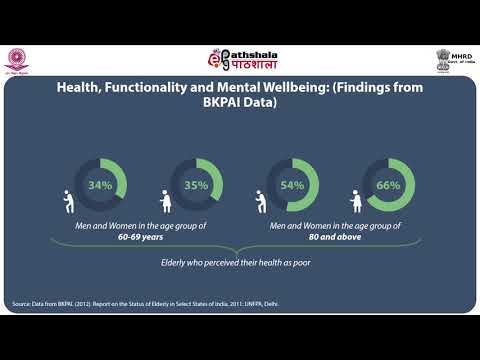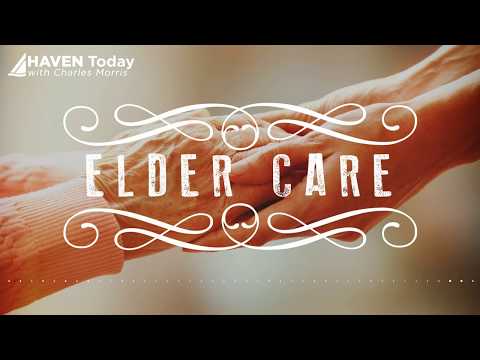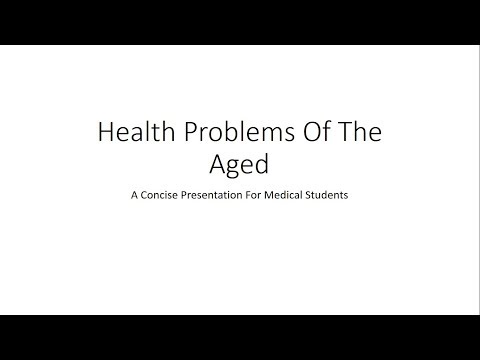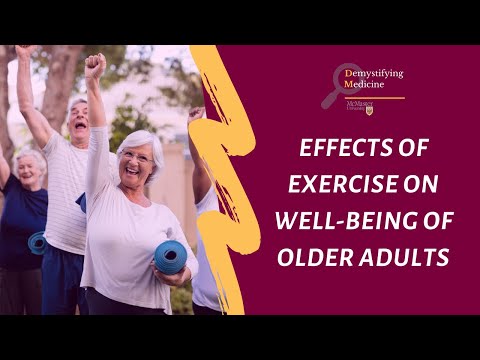The Physical Health of the Elderly: What You Need to Know
Contents [show]
As we age, our bodies go through changes that can impact our physical health. It’s important to be aware of these changes and how they can affect our health so we can take steps to stay healthy and active as we age.
Checkout this video:
The aging process and its effects on physical health
The aging process is accompanied by a number of physical changes that can affect a person’s health. These changes are the result of both the normal aging process and the effects of specific diseases that are more common in older adults.
There are several different theories about how aging affects physical health. One theory suggests that there is a general decline in all aspects of health, including physical function, as we age. Another theory suggests that the effects of aging on physical health vary depending on the individual.
One of the most well-known theories about aging and physical health is the “disuse theory.” This theory suggests that the less we use our bodies, the more our physical health declines. This decline can be due to a number of factors, including a decrease in muscle mass, a decrease in bone density, and a decrease in the production of hormones and enzymes.
The disuse theory has been supported by some research, but it is important to keep in mind that there are many other factors that can affect physical health as we age. For example, chronic diseases such as heart disease, stroke, and cancer become more common as we age. In addition, our lifestyle choices (such as diet and exercise) can have a huge impact on our physical health.
It is also important to remember that not all changes associated with aging are negative. For example, many older adults find that they have more time to enjoy hobbies and activities that they love. In addition, many older adults report feeling more wisdom and knowledge than they did when they were younger.
The most common health problems faced by the elderly
As you age, your risk of developing certain health problems increases. Some of the most common health problems faced by the elderly include:
-High blood pressure
-Heart disease
-Stroke
-Cancer
-Osteoarthritis
-Osteoporosis
-Alzheimer’s disease
-Parkinson’s disease
The importance of regular exercise for the elderly
As we age, our bodies become less able to do the things they once could. We lose muscle mass and bone density, and our reflexes slow down. This can make it difficult to stay active and keep up with our normal routine.
However, research has shown that regular exercise is one of the best things we can do to stay healthy as we age. It can help improve our balance and coordination, increase our strength and endurance, and reduce our risk of falls. Exercise can also help improve our mental health mood, and sleep quality.
The best way to get started is to talk to your doctor about what kind of exercise is right for you. They will be able to give you specific recommendations based on your health and fitness level. There are also many online resources and classes available for seniors who want to get started with exercise.
The importance of a healthy diet for the elderly
Good nutrition is vital at any age, but it’s especially important for seniors. As we age, our bodies become less efficient at absorbing nutrients from food, and we may have trouble digesting certain foods. Additionally, many seniors experience a decrease in appetite, which can make it even harder to get the nutrients we need.
A healthy diet for the elderly should include plenty of fruits and vegetables, whole grains, lean protein, and low-fat dairy. Seniors should also limit their intake of saturated and trans fats, added sugars, and sodium. Eating a healthy diet can help seniors maintain their strength and energy levels, prevent chronic diseases such as heart disease and diabetes, and improve their overall quality of life.
If you’re a senior or caring for a senior citizen, there are several things you can do to ensure that they’re getting the nutrition they need:
– Prepare meals together. Cooking with a friend or loved one can be a fun way to bond while also ensuring that nutritious meals are being prepared.
– Encourage them to eat breakfast. Skipping breakfast can make seniors more likely to overeat later in the day. A nutritious breakfast will give them the energy they need to start their day off right.
– Plan ahead. Preparing meals ahead of time can make it easier for seniors to eat healthy meals on a regular basis. Planning ahead can also help reduce food waste and save money on groceries.
– Shop smart. When grocery shopping with a senior citizen, try to find healthy alternatives to their favorite foods. For example, if they love ice cream, look for brands that are lower in sugar and fat.
– Seek out resources. There are many organizations and websites that offer tips and resources on how to eat healthy as a senior citizen. The National Institute on Aging’s website is a great place to start
The importance of staying hydrated for the elderly
As we age, our bodies become less efficient at maintaining hydration levels. This can lead to a number of health problems, including constipation, urinary tract infections, and even pressure sores.
It’s important to make sure that the elderly stay hydrated by ensuring they drink plenty of fluids throughout the day. Water is the best choice, but electrolyte-rich beverages can also be helpful. Juices and soups are also good options, as long as they’re not too high in sugar.
If an elderly person is having difficulty staying hydrated, it may be necessary to provide them with additional help, such as frequent reminders to drink fluids or assistance with getting to the bathroom. In some cases, it may also be necessary to increase their intake of fluids through IV therapy or other medical interventions.
The importance of getting enough sleep for the elderly
It’s no secret that getting enough sleep is important for your health, but for the elderly, it’s especially crucial. Sleep plays a vital role in maintaining physical health, and seniors are more likely to suffer from sleep problems than young adults.
There are a variety of factors that can contribute to sleep problems in the elderly, including medications, health conditions and lifestyle choices. However, lack of sleep can also lead to health problems, including falls, memory problems, and cardiovascular disease.
That’s why it’s so important for the elderly to get enough sleep. If you or a loved one is having trouble sleeping, talk to your doctor about possible solutions. There are a number of ways to improve sleep quality, and with some help, you can make sure that you or your loved one gets the restful night’s sleep that you need.
The importance of managing stress for the elderly
As we age, our bodies become more susceptible to the harmful effects of stress. This is why it’s so important for the elderly to find ways to manage stress in their lives.
unmanaged stress can lead to a host of health problems, including high blood pressure, heart disease, and stroke. It can also exacerbate existing conditions such as arthritis and diabetes. In addition, stress can contribute to mental health problems such as anxiety and depression.
There are many different ways to manage stress. Some people find relief in exercise or relaxation techniques such as yoga or meditation. Others find that spending time with friends and family or engaging in hobbies helps them to relax and destress.
Whatever method you choose, it’s important to find one that works for you and stick with it. Making stress management a part of your regular routine will help you stay healthy and happy well into your golden years.
The importance of regular check-ups for the elderly
The elderly are a vulnerable population when it comes to their health. They are more susceptible to developing chronic health conditions, such as heart disease, stroke, cancer, and diabetes. They are also more likely to experience a decline in their overall physical health. Regular check-ups are essential for the elderly to maintain their health and wellbeing.
Many elderly people live alone, which can make it difficult for them to get to their doctor appointments. There are a number of community resources that can help the elderly get to their doctor appointments, such as seniors’ centers, community transportation services, andMeals on Wheels programs.
It is also important for the elderly to stay active and physically fit. Regular exercise can help prevent a decline in physical health and improve overall wellbeing. There are a number of community programs that offer exercise classes specifically for seniors.
The importance of having a support system for the elderly
As we age, our bodies go through many changes. These changes can sometimes make it difficult to get around and do the things we used to do. As a result, we may need help from family and friends to get through the day.
A support system is a group of people who can offer help and assistance when needed. For the elderly, a support system can provide much-needed assistance with activities of daily living, such as bathing, dressing, and eating. A support system can also provide emotional support during times of stress.
The elderly are at a higher risk for physical health problems than younger adults. These problems can include falls, frailty, and chronic diseases such as arthritis, heart disease, and diabetes. Having a support system in place can help the elderly cope with these health problems and improve their quality of life.
There are many ways to build a support system for the elderly. One way is to join an Elder Care community or senior center. These communities provide social activities, supportive services, and access to resources that can help the elderly stay healthy and active. Elder care communities can also offer respite care for caregivers who need a break from their caregiving responsibilities.
Another way to build a support system for the elderly is to connect with other caregivers who are in similar situations. There are many caregiver support groups available online and in local communities. Connecting with other caregivers can provide much-needed emotional support and practical advice on how to cope with the challenges of caregiving.
If you are an elderly adult or a caregiver for an elderly adult, there are many resources available to help you build a strong support system. Taking advantage of these resources can improve your quality of life and make aging a bit easier.
The importance of taking care of oneself for the elderly
As we age, it becomes more and more important to take care of ourselves physically. This is because the elderly are more susceptible to age-related illnesses, such as osteoporosis, heart disease, and Alzheimer’s disease. Furthermore, the elderly often have a harder time recovering from injuries due to a slower healing process. With all of this in mind, it’s important to make sure that you are doing everything you can to stay healthy as you age.
Here are some tips for staying physically healthy as you get older:
-Engage in regular physical activity: This is one of the most important things you can do for your health as you age. Try to get at least 30 minutes of moderate-intensity exercise most days of the week. Walking is a great way to get your exercise, and it’s something that almost anyone can do.
-Eat a healthy diet: Just as exercise is important for your physical health, so is eating a healthy diet. Make sure to eat plenty of fruits, vegetables, whole grains, and lean protein. And limit your intake of saturated fat, salt, and sugar.
-Get regular checkups: Be sure to see your doctor regularly for preventive screenings and checkups. These can help catch problems early before they become serious.
-Stay social: Social interaction is important for both your mental and physical health. Try to stay connected with family and friends, and consider joining a seniors’ group or participating in other activities that interest you.







